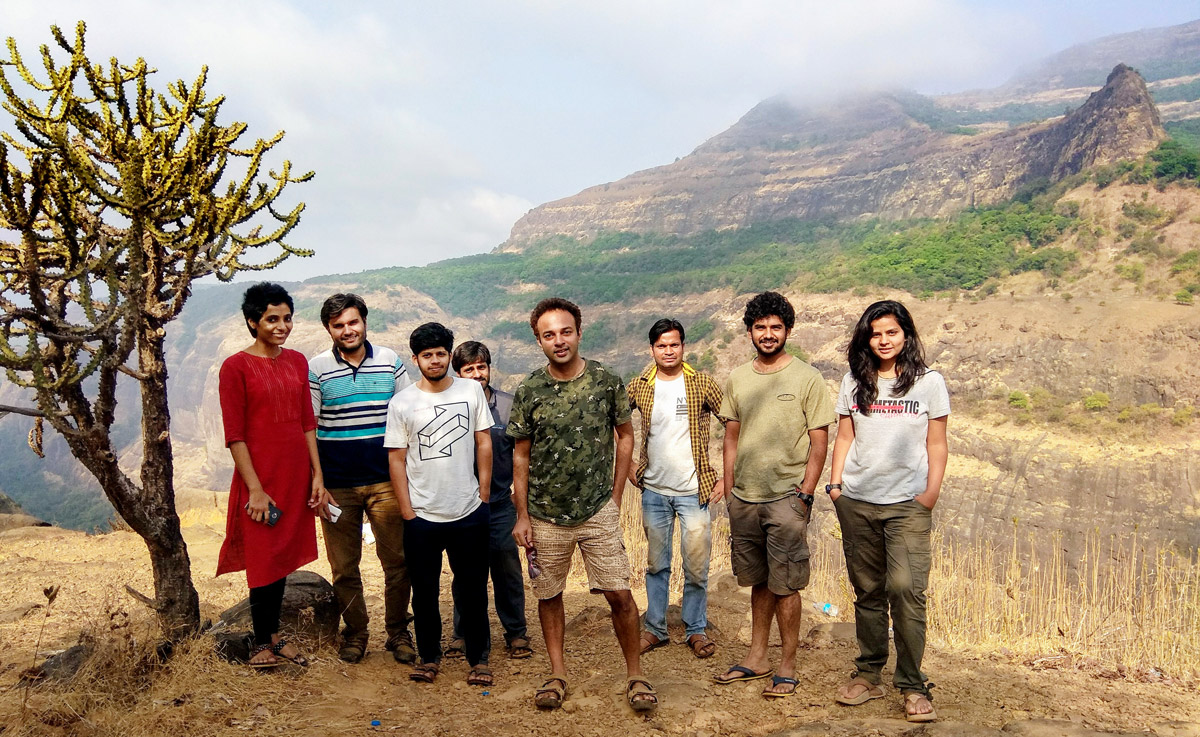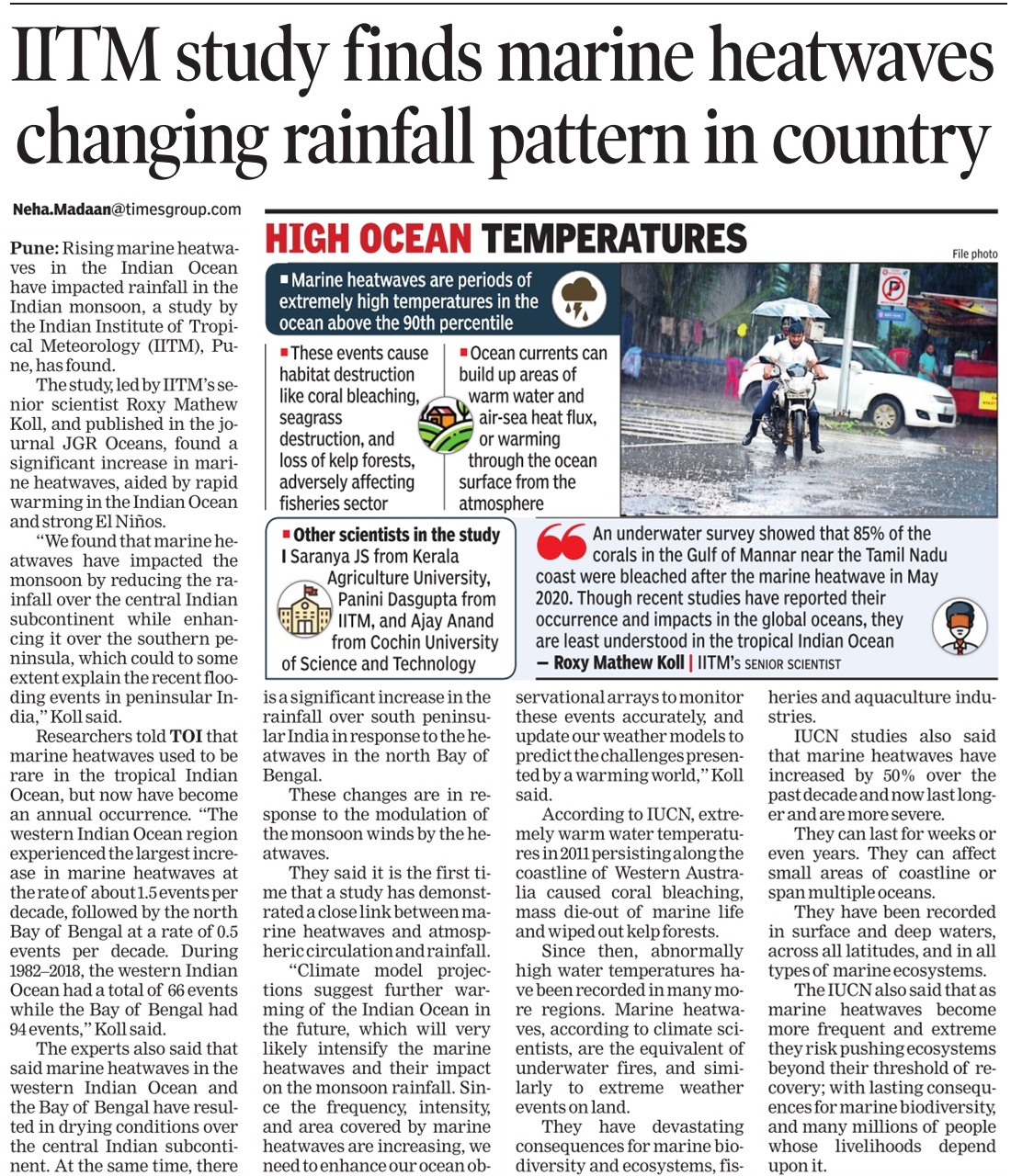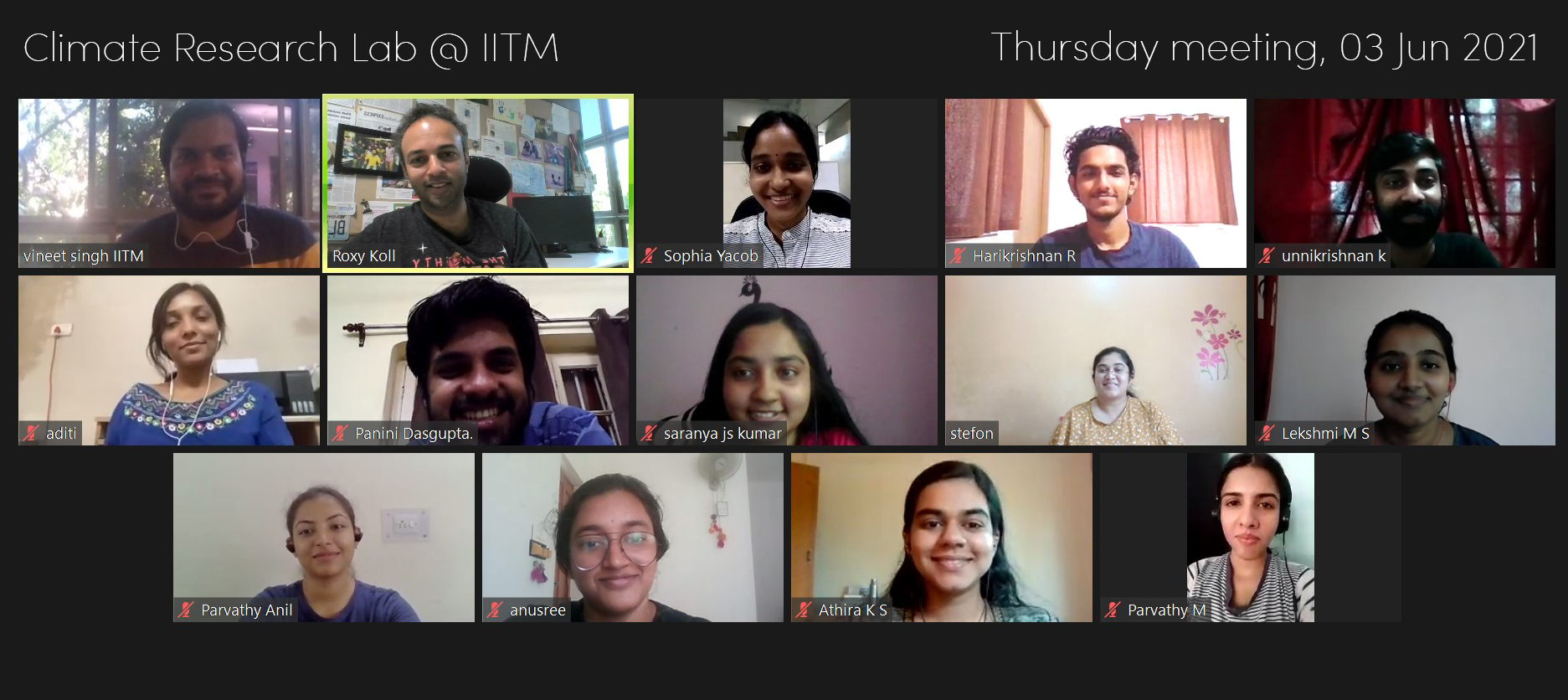| Sophia Yacob | |
 | Ph.D. Thesis [2020 – ]: Climate Change and Health in India Affiliation: Junior Research Fellow, Centre for Climate Change Research, IITM |
| Quick Summary of Ph.D. Thesis Climate change is impacting human health in different ways. Warming and extreme events, according to studies, develop conditions that are favorable to disease outbreaks. Climate change would also likely expand the geographic spread of some vector-borne diseases, such as malaria and dengue fever, to higher altitudes and latitudes. Changing temperatures and precipitation patterns linked to climate change will further affect health by changing the ecology of various vector-borne diseases, such as malaria, dengue, chikungunya, Japanese encephalitis, kala-azar, and filariasis. Climate variability and human health studies have revealed a great deal of heterogeneity in the reported associations. As a result, such research is extremely important in a country like India, which has a great deal of geographical and climatic diversity. A better understanding of the relationship between climate variability and human health could aid in the development of new prevention strategies and early warning systems, with implications throughout the developing world. Also, it is critical to accurately predict the future effects of climate change on various diseases to support effective policy-making and intervention activity in control and prevention. In her research, Sophia investigates the associations between weather conditions and climate-sensitive diseases in India based on available health data. She is working on developing an early warning prediction model for Dengue. The model will also help assess future changes in climate-sensitive diseases. | |




